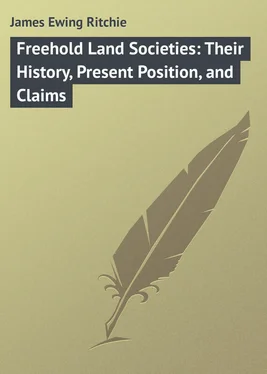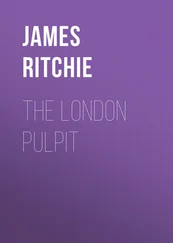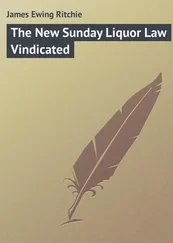James Ritchie - Freehold Land Societies - Their History, Present Position, and Claims
Здесь есть возможность читать онлайн «James Ritchie - Freehold Land Societies - Their History, Present Position, and Claims» — ознакомительный отрывок электронной книги совершенно бесплатно, а после прочтения отрывка купить полную версию. В некоторых случаях можно слушать аудио, скачать через торрент в формате fb2 и присутствует краткое содержание. Жанр: foreign_prose, на английском языке. Описание произведения, (предисловие) а так же отзывы посетителей доступны на портале библиотеки ЛибКат.
- Название:Freehold Land Societies: Their History, Present Position, and Claims
- Автор:
- Жанр:
- Год:неизвестен
- ISBN:нет данных
- Рейтинг книги:3 / 5. Голосов: 1
-
Избранное:Добавить в избранное
- Отзывы:
-
Ваша оценка:
- 60
- 1
- 2
- 3
- 4
- 5
Freehold Land Societies: Their History, Present Position, and Claims: краткое содержание, описание и аннотация
Предлагаем к чтению аннотацию, описание, краткое содержание или предисловие (зависит от того, что написал сам автор книги «Freehold Land Societies: Their History, Present Position, and Claims»). Если вы не нашли необходимую информацию о книге — напишите в комментариях, мы постараемся отыскать её.
Freehold Land Societies: Their History, Present Position, and Claims — читать онлайн ознакомительный отрывок
Ниже представлен текст книги, разбитый по страницам. Система сохранения места последней прочитанной страницы, позволяет с удобством читать онлайн бесплатно книгу «Freehold Land Societies: Their History, Present Position, and Claims», без необходимости каждый раз заново искать на чём Вы остановились. Поставьте закладку, и сможете в любой момент перейти на страницу, на которой закончили чтение.
Интервал:
Закладка:
J. Ewing Ritchie
Freehold Land Societies: Their History, Present Position, and Claims
“The laws of this country recognise nothing more sacred than the Forty-shilling Freehold Franchise; and a vote for the county obtained by these means is both constitutional and laudable.”
– Lord Chief-Justice Tindal.“What he had heard from hon. members told him nothing more than this, that the working population could easily, under the old system, acquire the right of voting; and that every man who owned forty shillings a-year could entitle himself to vote. Were they to be told that the people of England were so degraded, so besotted, so dead to all sense of their true interests, that they could make no efforts to possess themselves of the franchise?”
– Mr. Disraeli.ADVERTISEMENT
The following pages are reprinted from the “Weekly News and Chronicle” – the only Paper that aims to be the organ of the Freehold Land Movement. They are now published in the hope that they may win for that movement a wider support and a heartier sympathy than it has already secured. It is a child – it will be a giant ere long.
3, Clifford’s Inn.
April 1853.
FREEHOLD LAND SOCIETIES: THEIR HISTORY, PRESENT POSITION, AND CLAIMS
The Freehold Land Movement is the great fact of the age. We propose to consider it in its origin, its present position as a means of investment for the middle and working-classes, and in its political and social and moral bearings. We propose to tell what it has done, and what it seeks to do. Born of a working-man, it especially aims at the elevation of working-men. It comes to them, and offers them independence, wealth, and political power. Conceived in a provincial town, its ramifications now extend through the land. It demands no mean place in the consideration of the influences now at work for realising a future brighter and better than the past. The philosopher, the political economist, and the philanthropist must alike, then, deem it worthy of serious regard. On the part of a people, the absence of recklessness and waste is a great good; but the formation of industrial and economical habits is a still greater good. From such plain, unpoetical traits of national character are born the arts and the graces, and all that is civilised and refined in life. A rich people is not less virtuous, and is certainly far happier, than a poor one. Therefore we say, let the Freehold Movement have wide support, for it is a schoolmaster, teaching the path leading the people of this country to wealth, and to the power and independence which wealth alone can give. Thus much by way of introduction. That our readers may fully understand the subject, we shall begin at the beginning, and explain.
Some time back the Times asked scornfully, as Pilate of old did concerning truth, what was a Freehold Land Society. We reply, viewed in a business light, it is simply a society for the purchase of land. It involves two commercial principles well understood – that purchasers should buy in the cheapest market, and that societies can do what individuals cannot. Till the movement originated, the purchaser of a small plot of ground had to pay in lawyer’s expenses connected with the purchase frequently as much as he paid for the plot itself. A society buys a large piece of ground. They make roads through it; they drain it; they turn it into valuable building-land; they thus raise its value; and they divide it amongst their members, not at the price at which each allotment is worth, but at the price which each allotment has cost. Being also registered under the Friendly Societies Act, the conveyance costs the purchaser generally from 25s. to 30s.; and thus a plot worth £50 is often put into the fortunate allottee’s hands for half that sum. Of course, different societies have different rules, but they all aim at the same end, and effect that end in pretty nearly a similar manner. Thus a member generally, if he subscribes for a share of £30, pays a shilling a-week, and a trifling sum a-quarter for expenses. With the money thus raised an estate is purchased. It is then cut up into allotments, and balloted for. If the subscriber has paid up, he, of course, takes the land, and there is an end of the matter. If he has not, the society gives him his allotment, but saddled with a mortgage. In some societies the members are served by rotation, and “first come” are “first served.” The more generally-adopted plan, however, is division by ballot. There has been some doubt as to the legality of the ballot; the Conservative Society have taken the opinion of eminent counsel upon this matter, and their opinion is, that the ballot is perfectly legal. The rotation societies offer no inducements to new members to join them; so division by ballot has come to be almost the universal rule. In the National, for instance, there was a ballot daily for all subscribers of three months’ standing. This has recently been altered. A ballot takes place every day, to which all are eligible whose subscriptions are paid up. If you join the National, you may go to the ballot immediately.
As the National is the largest of the existing Freehold Land Societies – last year its receipts being £190,070 – we will briefly allude to its prospectus as a still further illustration of what a Freehold Land Society is. The especial objects of this Society are described as “to facilitate the acquisition of freehold land, and the erection of houses thereon; to enable such of its members as are eligible to obtain the county franchise, and to afford to all of them a secure and profitable investment for money.” In the National, all the expenses are defrayed out of a common fund; consequently, there are no extra charges, and the net profits, after payment of interest on subscriptions in advance and on completed shares, are annually divided amongst the holders of uncompleted shares. In this way last year the National divided £3,161. 19s. 3d., and the directors credited each unadvanced share with profit at the rate of £10. 16s. 8d. per cent. per annum. We only add, as a still further explanation of the societies in general, that they are all conducted on the most perfectly democratic principles. Vote by ballot and universal suffrage are the rule with them. The members elect their own officers. In all the societies, also, provision is made for casualties, such as sickness or death. In case of death, the subscriber’s widow or heirs take his place. If he be unable, from sickness or poverty, to continue his subscription, he is not fined, but is allowed to wait for better times. If he wishes his money back, he can have it returned, with a slight reduction for the working expenses of the Society. Juniors may be members. Actually these societies so far practically admit woman’s rights as to offer to the ladies the same desirable investments they offer to the sterner sex. In short, the Freehold Land Movement appeals to all ranks and conditions of the community. It may be said of a Freehold Land Society what has often been said of the London Tavern, that it is open to all – who can pay.
Primarily the movement was political, and was established for the purpose of giving the people of this country the political power which they at present lack. Originally the forty-shilling freehold was established to put down universal suffrage. As a part and parcel of the British constitution it has been religiously preserved to the present time, and threatens to be an excellent substitute for what it was originally intended to destroy. During the Anti-Corn-Law agitation Mr.
Читать дальшеИнтервал:
Закладка:
Похожие книги на «Freehold Land Societies: Their History, Present Position, and Claims»
Представляем Вашему вниманию похожие книги на «Freehold Land Societies: Their History, Present Position, and Claims» списком для выбора. Мы отобрали схожую по названию и смыслу литературу в надежде предоставить читателям больше вариантов отыскать новые, интересные, ещё непрочитанные произведения.
Обсуждение, отзывы о книге «Freehold Land Societies: Their History, Present Position, and Claims» и просто собственные мнения читателей. Оставьте ваши комментарии, напишите, что Вы думаете о произведении, его смысле или главных героях. Укажите что конкретно понравилось, а что нет, и почему Вы так считаете.












